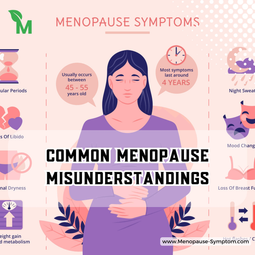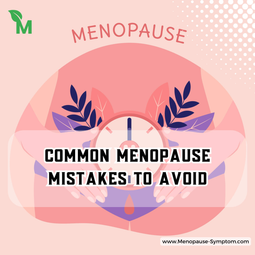Perimenopause, also known as the transition to menopause, can be a challenging time for many women. During this phase, typically in their late 40s or early 50s, women experience a range of physical and emotional changes due to fluctuating hormone levels in their body. However, with a few lifestyle adjustments, women can manage the symptoms of perimenopause and make this transition as smooth as possible.
Understanding the Symptoms of Perimenopause
Understanding the Symptoms of Perimenopause The most common symptoms of perimenopause include irregular periods, hot flashes, night sweats, and mood swings. Some women may also experience difficulty sleeping, vaginal dryness, and decreased sex drive. It's essential to understand that every woman's experience with perimenopause is different, and some may not experience all of these symptoms. However, knowing the potential changes that may occur can help women navigate this phase more confidently.
Maintaining a Balanced Diet to Manage Hormone Changes
Maintaining a Balanced Diet to Manage Hormone Changes As hormone levels shift during perimenopause, the body may require additional nutrients to support these changes. Eating a well-balanced diet rich in whole grains, fruits, vegetables, and lean protein can help regulate hormone levels and alleviate symptoms. It's also essential to limit alcohol and caffeine intake, as they can trigger hot flashes and mood swings. Consulting a nutritionist can also help create a personalized diet plan to manage perimenopause symptoms.
Incorporating Stress-Relieving Activities into Your Routine
Incorporating Stress-Relieving Activities into Your Routine Perimenopause can also bring increased levels of stress and anxiety for many women. Finding healthy ways to manage stress is crucial during this time. Activities like yoga, meditation, and deep breathing exercises can help reduce stress and improve overall well-being. Engaging in hobbies, spending time in nature, and connecting with loved ones can also help alleviate stress and improve mood.
Navigating the changes of perimenopause can be challenging, but with the right approach, it can also be empowering and transformative.
Exercising Regularly for Physical and Mental Health
Exercising Regularly for Physical and Mental Health Regular exercise not only has physical benefits but can also improve overall mental health during perimenopause. Engaging in activities like walking, jogging, dancing, or swimming can help regulate hormones, improve mood, and boost energy levels. It's essential to find exercises that are enjoyable and sustainable, as consistency is key. Also, consult a doctor before starting any new exercise regimen.
Perimenopause may bring challenges, but it's also a natural and inevitable process for women. With a few lifestyle adjustments, women can navigate this phase more smoothly and minimize its impact on their daily lives. Understanding the symptoms, maintaining a balanced diet, finding ways to manage stress, and staying physically active can help women manage perimenopause and emerge stronger and healthier on the other side.
Source: Team MPS compiled, analyzed and wrote. Please dont reup without source. Many thanks.

The Truth About Premenopause And Its Myths
Invalid Date

Say Goodbye To Menopause Symptoms
Invalid Date

Common Menopause Misunderstandings
Invalid Date

Common Menopause Mistakes To Avoid
Invalid Date
